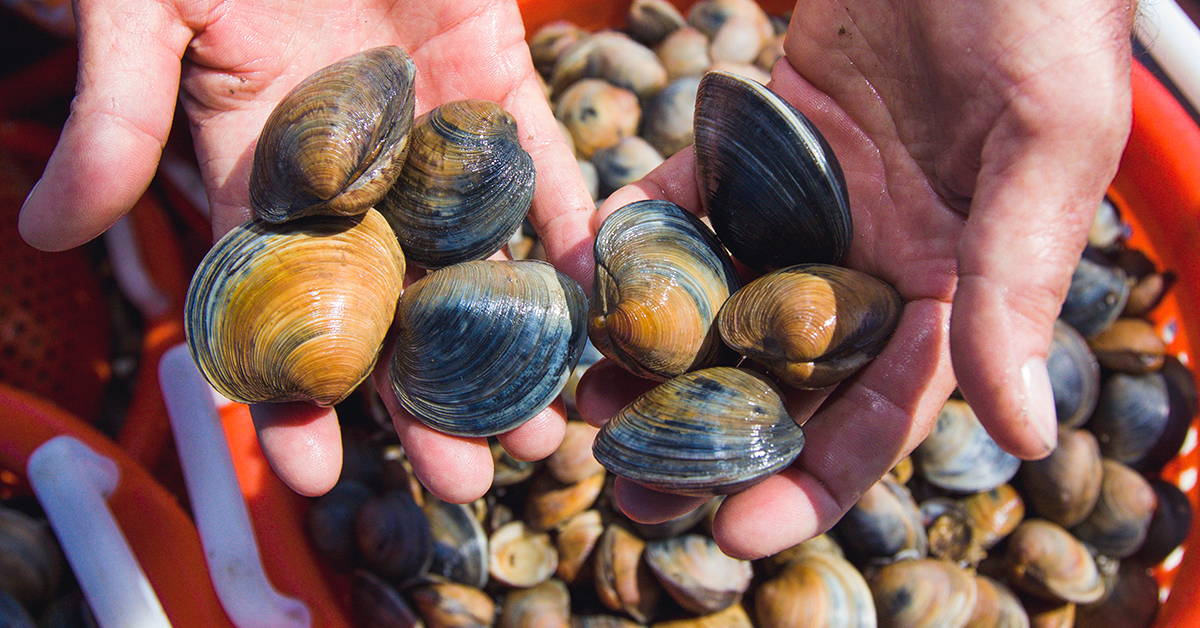2020 Clam buyback project helped Florida farmers, ecosystems
People love Florida-farmed clams. They are great on pasta or to eat baked, steamed or raw. Sales of these munchable mollusks typically peak around holidays, but during the 2020 Memorial Day weekend, Florida clam farmers watched as markets for their product dwindled in the face of the COVID-19 pandemic. Restaurants and bars are the largest…
Details

![twin-lakes-subdivision-in-key-largo-florida-flooding-in-2019-[1200×628]-web Flooding in 2019 at a Twin Lakes Subdivision in Key Largo](https://archive.flseagrant.org/wp-content/uploads/twin-lakes-subdivision-in-key-largo-florida-flooding-in-2019-1200x628-web.jpg)
![great-goliath-grouper-count-[220×200]-web Great Goliath Grouper Count logo](https://archive.flseagrant.org/wp-content/uploads/great-goliath-grouper-count-220x200-web.png)
![camila-rimoldi-skoch-scholarship-[1200×625]-web Camila Rimoldi uses lab space to conduct coral research](https://archive.flseagrant.org/wp-content/uploads/camila-rimoldi-skoch-scholarship-1200x625-web-1.jpg)
![water-testing-[1200×628]-web UF/IFAS Experts](https://archive.flseagrant.org/wp-content/uploads/water-testing-1200x628-web.jpg)
![water-watch-[1200×628]-web Water quality sampling volunteer](https://archive.flseagrant.org/wp-content/uploads/water-watch-1200x628-web.jpg)
![coastal-policy-fellowship-[1920×900]-web](https://archive.flseagrant.org/wp-content/uploads/coastal-policy-fellowship-1920x900-web.png)
![coral-eca-webpage-banner-[1920×800]-web Private: Fisheries and Conservation in the Coral ECA: A Stakeholder Process](https://archive.flseagrant.org/wp-content/uploads/coral-eca-webpage-banner-1920x800-web.jpg)
![meet-the-2021-Aylesworth Scholars-[1200 × 628]-web collage of three graduate students named 2021 Aylesworth Scholars](https://archive.flseagrant.org/wp-content/uploads/meet-the-2021-Aylesworth-Scholars-1200 × 628-web.png)
![SeaGrantLivingShoreline-[1200×682]-web](https://archive.flseagrant.org/wp-content/uploads/SeaGrantLivingShoreline-1200x682-web.jpg)